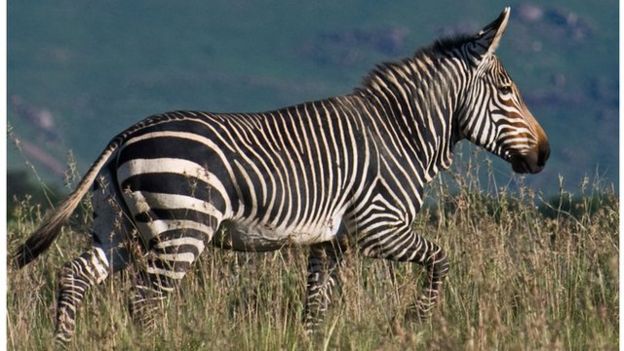About 60% of giant herbivores - plant-eaters - including rhinos, elephants and gorillas, are at risk of extinction, according to research.
Analysis of 74 herbivore species, published in Science Advances, blamed poaching and habitat loss.
A previous study of large carnivores showed similar declines.
Prof William Ripple, of Oregon State University, led the research looking at herbivores weighing over 100kg, from the reindeer up to the African elephant.
"This is the first time anyone has analysed all of these species as a whole," he said.
"The process of declining animals is causing an empty landscape in the forest, savannah, grasslands and desert."

The threatened mountain zebra
Prof David Macdonald, of Oxford University's Wildlife Conservation Research Unit, was among the team of 15 international scientists.
"The big carnivores, like the charismatic big cats or wolves, face horrendous problems from direct persecution, over-hunting and habitat loss, but our new study adds another nail to their coffin - the empty larder," he said.
"It's no use having habitat if there's nothing left to eat in it."
According to the research, the decline is being driven by a number of factors including habitat loss, hunting for meat or body parts, and competition for food and resources with livestock.